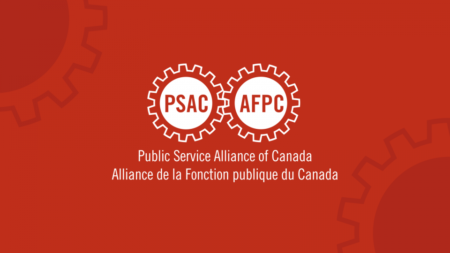PSAC members in the EB, PA, SV and TC groups are invited to attend national townhall meetings to get the latest updates about bargaining with Treasury Board as we work to secure a fair contract for 165,000 federal public service workers.
Throughout this round of bargaining and at Public Interest Commission (PIC) hearings that wrapped up before the holidays, we’ve seen how the federal government has refused to address any of our key issues at the table, including fair wages, better work-life balance, addressing racism and discrimination and protecting good, secure jobs.
What to expect at the townhalls?
You will hear from members, researchers, and negotiators from your national bargaining team about the latest bargaining updates and how we’re escalating our actions across the country to reach a fair deal. You will have an opportunity to ask questions and share your concerns.
This is your chance to learn how your bargaining team is fighting for a fair contract, and how you can support them.
All townhalls will have simultaneous English and French interpretation.
Need to find out which bargaining at group you are in? Consult your collective agreement or use this tool.
EB townhalls
PA townhalls
SV townhalls
TC townhalls
Stay informed and engaged
Getting involved and taking action are key as we push for a fair contract. Be prepared, get mobilized, stay engaged, and be ready to take action:
- Register for strike training in your region
- Read our Treasury Board bargaining toolkit
- Check out our FAQ on Treasury Board bargaining
- Attend PSAC national and regional events
- Participate in actions, information sessions, lunch and learns, and workshops
- Get in touch with your regional office to get involved
Keep your contact information up to date to receive all the latest bargaining updates.
This article was first posted on the PSAC website.







